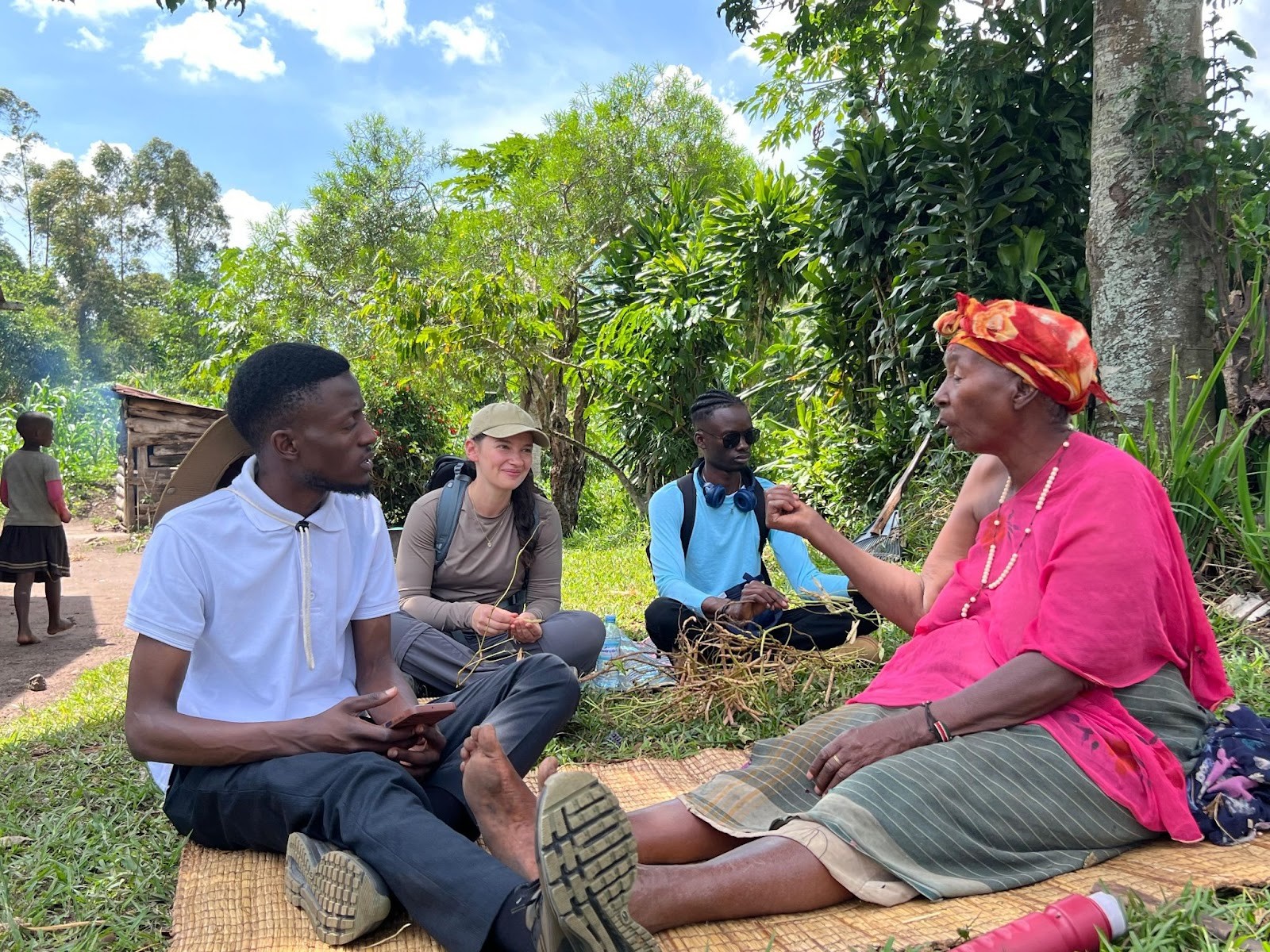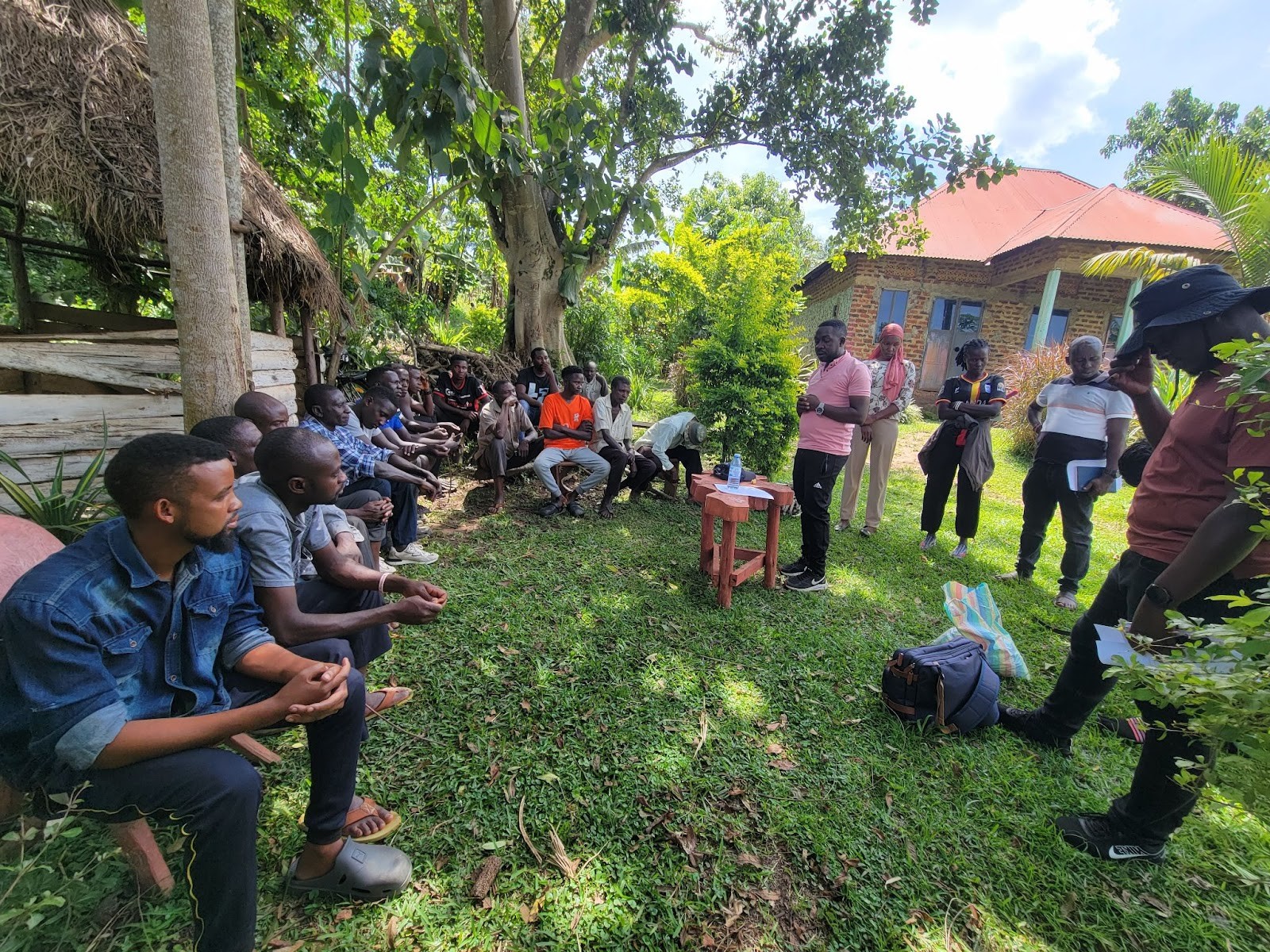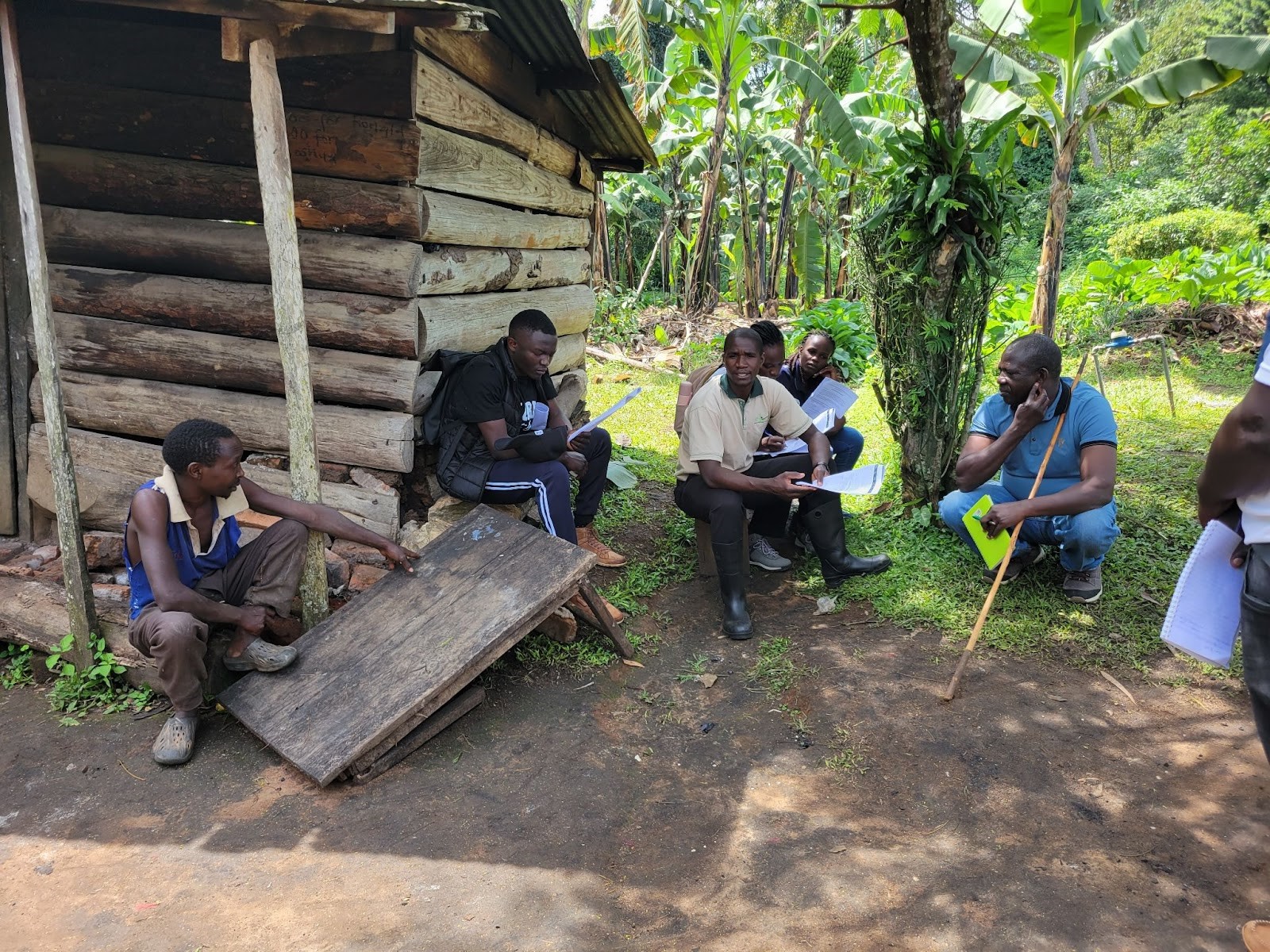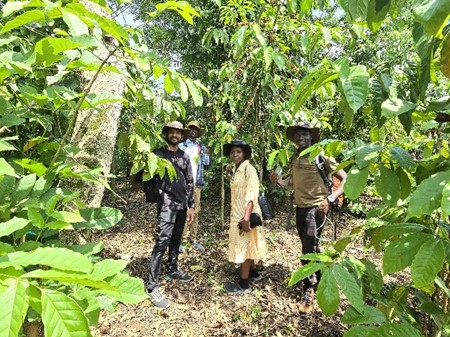
Kibale National Park, often referred to as the Primate Capital of the World due to its remarkable biodiversity and presence of over 13 primate species, served as the focal site for a recently concluded two-week interdisciplinary field course. The DAAD Funded project course was conducted under the collaborative partnership between Makerere University (Uganda) and Rhein-Waal University of Applied Sciences (Germany), emphasizing sustainability, conservation, and community engagement.
This annual field course, conducted from 26th May to 3rd June 2025, brought together graduate students and faculty from both institutions for an immersive academic and cultural experience. The German delegation comprised four students – Arati Maharjan, Josemon James, Livingstone Turwomwe, and another – accompanied by Ms. Nele Vahrenhorst, project coordinator, and Joseph Kalyango, student project assistant.

Upon arrival in Uganda, they joined their counterparts at Makerere University for a structured onboarding programme that included more than 50 participants, mainly Master’s students from Uganda and Germany.
Preparatory Week at Makerere University (26th-30th May 2025)
The preparatory phase commenced with an on-boarding session on 26th May, hosted by Professor Justine Namaalwa at the Department of Environmental Management. This session offered foundational knowledge on Uganda’s ecological systems, ongoing conservation efforts, and an overview of the joint research goals.
Throughout the preparatory week, participants attended a series of interactive workshops focusing on theoretical and methodological training. These included:
- “Ethical Considerations in Qualitative Research” by Assoc. Prof. Gorette Nabanoga
- “Ethical Considerations in Quantitative Research” by Assoc. Prof. Justine Namaalwa
- “Reproducible Research” delivered virtually by Prof. Oliver Serfling from Germany

Students were organized into four thematic research streams:
- Environmental Monitoring and Assessment
- Natural Resource Management
- Environmental Governance and Policy
- Environmental Pollution and Waste Management
Each stream was led by an academic facilitator, including Assoc. Prof. Vincent Muwanika, Assoc. Prof. Anthony Egeru, Dr. Joel Kinobe, and Dr. Patrick Byakagaba, who guided the students through concept development, methodological design, and tool creation.
Field Engagement at Kibale National Park (30th May-3rd June 2025)
On 30th May, the group travelled to the Makerere University Biological Field Station (MUBFS) located within Kibale National Park. Over the following five days, students conducted field research aligned with their thematic areas. Activities included biodiversity monitoring, community interviews, environmental assessments, and stakeholder engagement in areas such as Bigodi, Mabono, Kasiisi, and Kanyawara.
The fieldwork phase provided students with hands-on experience in data collection, participatory research, and interdisciplinary collaboration. This component also emphasized community-centered approaches to conservation, enabling students to understand the socio-ecological dynamics at play in and around protected areas.

Post-Fieldwork Analysis and Reporting
Upon return to Makerere University on 4th June, the participants entered a structured reporting phase. From 9th-12th June, students engaged in data analysis, report writing, and synthesis of their findings.
Outcomes and Future Outlook
This field course not only deepened academic understanding but also nurtured intercultural competence, research ethics, and collaborative problem-solving. The experience reinforced the importance of international partnerships in advancing the United Nations Sustainable Development Goals (SDGs), particularly in the realms of quality education, climate action, and life on land.
The Makerere-Rhine-Waal field course stands as a testament to the value of interdisciplinary, experiential learning. It continues to serve as a platform for developing future environmental leaders equipped to address global ecological and social challenges. Further collaboration is anticipated in the years ahead thanks to funding from all partners including Deutscher Akademischer Austausch Dienst (DAAD), building on the success and insights gained from this initiative.
https://drive.google.com/drive/folders/1pgzxNDBU-MMNo086M0iyrhzIq4JBq1g5?usp=sharing

